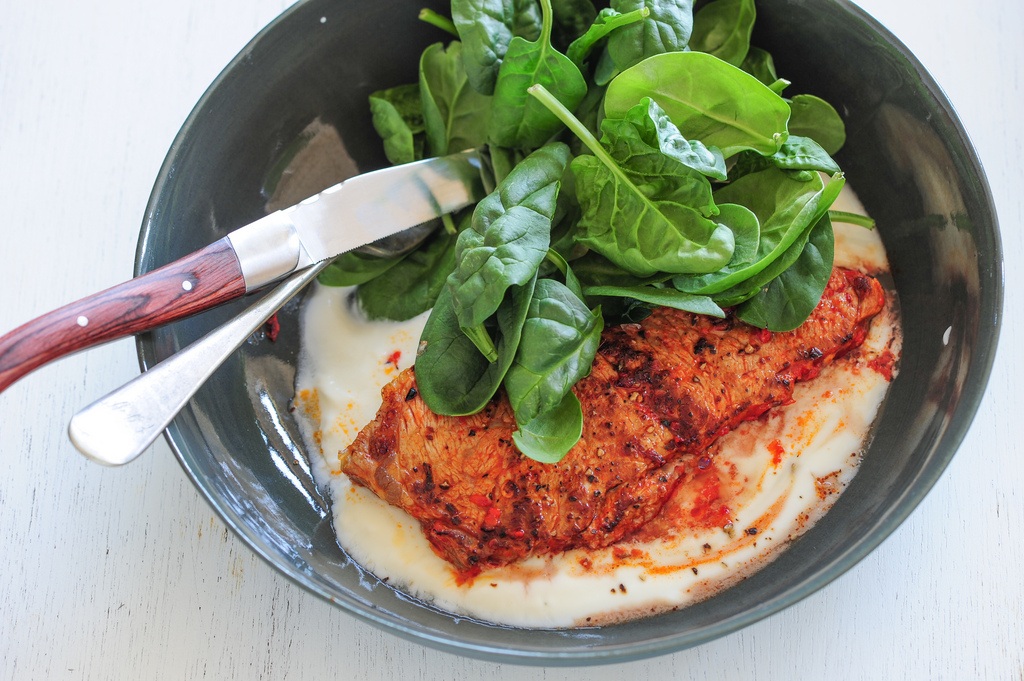Have you ever reached for a favorite recipe to find that it requires you marinate the chicken overnight? You had to rule out that recipe as an option for the evening and need to rethink your plans. This question may have popped into your head: is it necessary to marinate food and for how long exactly?
Should you bother to marinate your meat overnight, or skip it entirely?
I advise that you try your recipe with the marinade anyway, because even a few minutes sitting in a marinade can greatly enhance the flavor of your ingredients.
That marinade will also improve the texture. Chicken thighs marinated will seem more succulent and juicy than regular chicken thigh fillets.
So should marinating really take hours? It doesn’t have to, but if you have the time, there are two primary reasons to consider marinades: They add flavor and they tenderize the meat.
Here are some further tips for delicious and safe marinating.
1. Marinating doesn’t have to be complicated.
The best marinades are often very simple, some oil and vinegar or lemon juice will do. Herbs, spices or garlic can add interest, but aren’t essential.
2. Use “non-reactive” containers.
You should mix your marinade in a glass or ceramic bowl and toss the meat in. Metal or plastic containers are best avoided. You could also use a zip lock bag because it’s a great way to get lots of contact between the marinade and the surface of the food, but I often worry about plastic leaching into food.
3. Know when to refrigerate.
If you’re going to cook right away, just leave the marinating ingredients sit while you get ready to cook. However, if you’re not going to be cooking for a few hours or longer, do cover and refrigerate.
4. Cook or discard any used marinade.
You can use the leftover marinade for a sauce. If a marinade has been used for raw food, definitely discard it or boil vigorously for at least 5 minutes before using as a sauce.
5. Consider a “post-cooking” marinade.
This works when you’re short on time because you can get the food on to cook and mix up your marinade or sauce while it cooks. The post-cooking technique works well for meat because as it rests in the marinade, the juices combine with the marinade to make a delicious sauce. Try cooking a steak then drizzling over lemon juice and olive oil while it rests.
Marinating is also a wonderful way to add flavor to grilled or barbecued vegetables. Try tossing grilled zucchini, bell peppers and eggplant in a post-cooking marinade of one part balsamic vinegar and three parts oil spiked with a clove of garlic and some chopped rosemary. Just remember to remove the raw garlic before serving.
In the recipe below, you can get the same great harissa marinade flavor merely by applying the harissa to the meat before it goes into the pan. If you have time to marinate, do go ahead.
Harissa is a hot spice paste from Morocco and Tunisia. You can buy it in tubes from a good deli. I usually cook my steaks at a very high heat, but I find it’s better to use a more gentle heat here to keep the harissa from burning.
Harissa Steaks with Yogurt Sauce
Serves 2
2 steaks, trimmed
2-4 tablespoons harissa
6-8 tablespoons natural yogurt
3-4 handfuls baby spinach
1. Heat a frying pan or BBQ on a medium high heat.
2. Combine harissa with 1 tablespoon extra virgin olive oil. Taste and if it’s not hot enough add more harissa. Toss steaks in the harissa mixture.
3. Sear steaks for 2-3 minutes each side or until well browned and cooked to your liking.
4. Season yogurt with salt and pepper and divide between 2 serving plates. Top with steaks and baby spinach leaves.
Featured photo credit: Jules Clancy via flic.kr













































